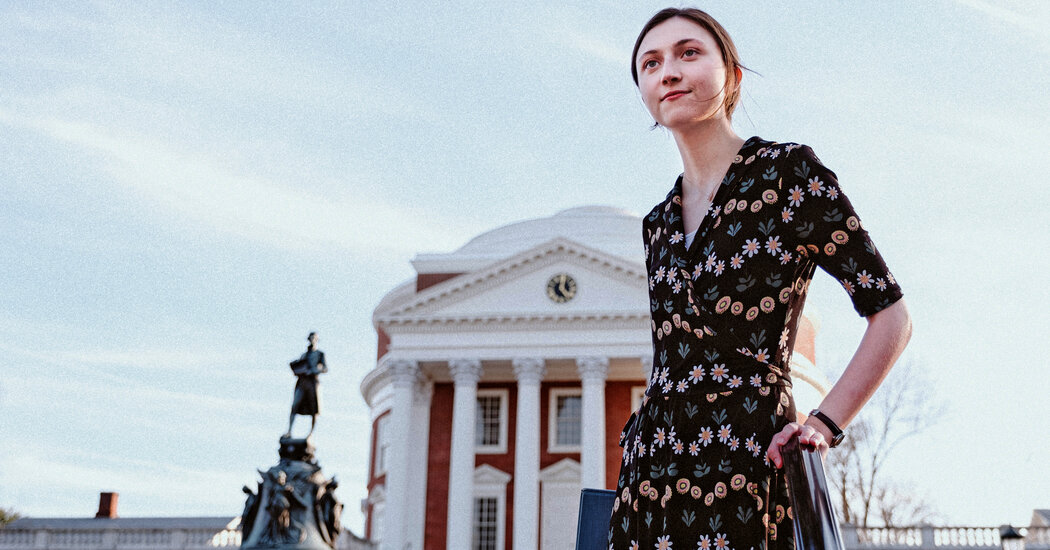
Ms. Sacks felt overwhelmed. “Everyone adding on to each other kind of energized the room, like everyone wanted to be part of the group with the correct opinion,” she said. The experience, she said, “made me not want to go to class again.” While Ms. Sacks did continue to attend the class, she participated less frequently. She told me that she felt as if she had become invisible.
Other campuses also struggle with this. “Viewpoint diversity is no longer considered a sacred, core value in higher education,” Samuel Abrams, a politics professor at Sarah Lawrence College, told me. He felt this firsthand. In 2018, after he published an Opinion essay in The Times criticizing what he viewed as a lack of ideological diversity among university administrators, his office door was vandalized. Student protesters demanded his tenure be reviewed. While their attempts were unsuccessful, Dr. Abrams remains dissatisfied with fellow faculty members’ reactions. In response to the incident, only 27 faculty members signed a statement supporting free expression — less than 10 percent of the college’s faculty.
Dr. Abrams said the environment on today’s campuses differs from his undergraduate experience. He recalled late-night debates with fellow students that sometimes left him feeling “hurt” but led to “the ecstasy of having my mind opened up to new ideas.” He worries that self-censorship threatens this environment and argues that college administrations in particular “enforce and create a culture of obedience and fear that has chilled speech.”
The solution to self-censorship cannot merely be to encourage students to be more courageous. Is it brave to risk your social standing by saying something unpopular? Yes. Is it reasonable to ask college students — the 48 percent of us who feel uncomfortable sharing our views — to solve this problem independently? No.
And believe me, I’ve tried.
I protested a university policy about the size of signs allowed on dorm room doors by mounting a large sign of the First Amendment. It was removed by the university. In response, I worked with administrators to create a less restrictive policy. As a columnist for the university paper, I implored students to embrace free expression. In response, I lost friends and faced a Twitter pile-on. I have been brave. And yet, without support, the activism of a few students like me changes little.
Our universities cannot change our social interactions. But they can foster appreciation for ideological diversity in academic environments. Universities must do more than make public statements supporting free expression. We need a campus culture that prioritizes ideological diversity and strong policies that protect expression in the classroom.
Universities should refuse to cancel controversial speakers or cave to unreasonable student demands. They should encourage professors to reward intellectual diversity and nonconformism in classroom discussions. And most urgently, they should discard restrictive speech codes and bias response teams that pathologize ideological conflict.




